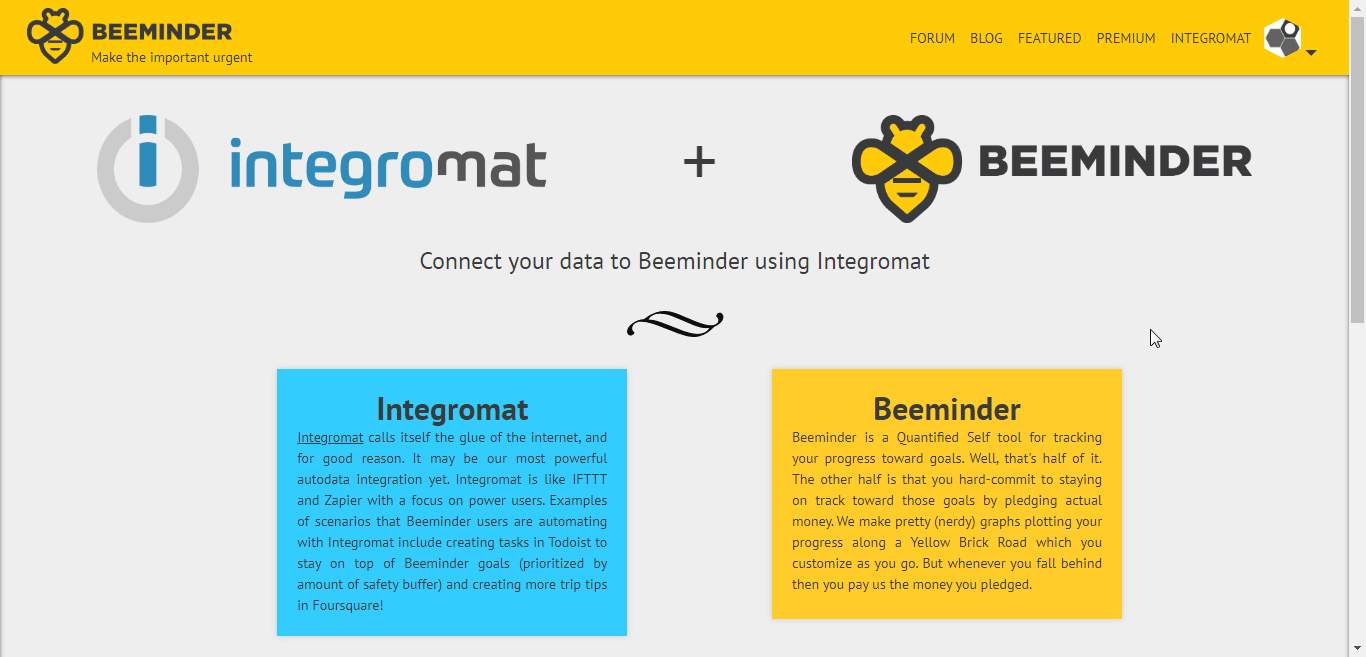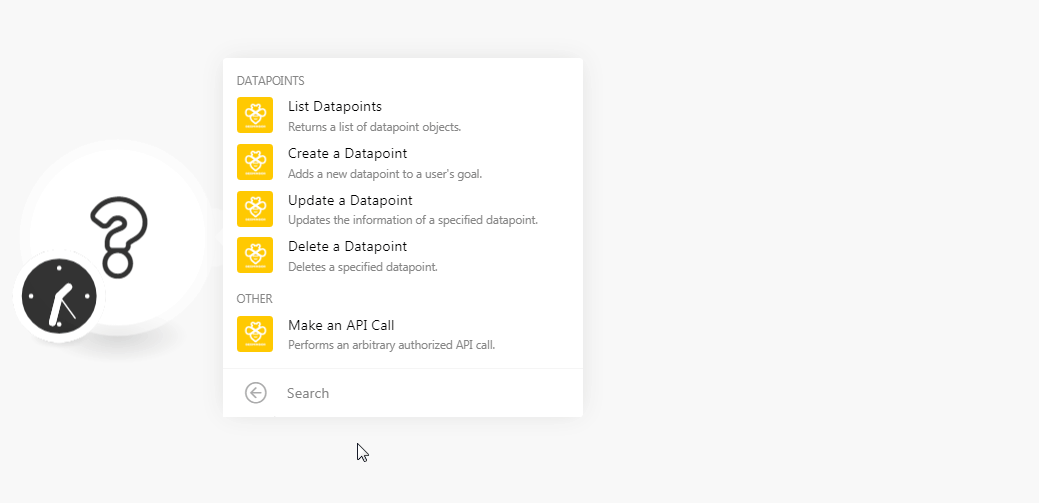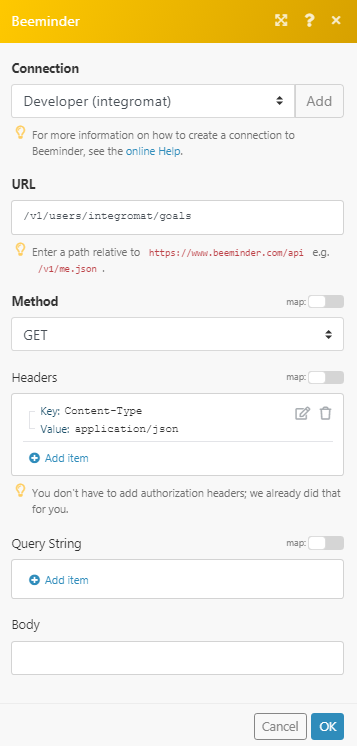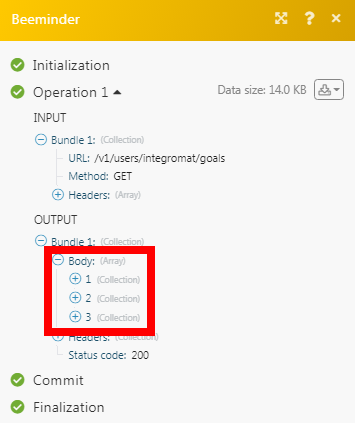The Beeminder modules allow you to create, update, list, and delete the datapoints in your Beeminder account.
To get started with Beeminder, create an account at beeminder.com/users/sign_up.
To connect your Beeminder account to Boost.space Integrator you need to obtain the API Key from your Beeminder account and insert it in the Create a connection dialog in the Boost.space Integrator module.
1. Log in to your Beeminder account.
2. Click Your Profile Icon > ACCOUNT SETTINGS > APPS & API.

3. Copy the Auth Token to your clipboard.

4. Go to Boost.space Integrator and open the Beeminder module’s Create a connection dialog.

5. In the Connection name field, enter a name for the connection.
6. In the Auth Token field, enter the Auth token copied in step 3, and click Continue.
The connection has been established.
Returns a list of datapoints objects.
|
Connection |
|
|
Goal |
Select the goal whose datapoints you want to list. |
|
Sort by |
Select the option to sort the datapoints:
|
|
Limit |
Set the maximum number of datapoints Boost.space Integrator should return during one scenario execution cycle. |
Adds a new datapoint to a user’s goal.
|
Connection |
|
|
Goal |
Select the goal for which you want to create the datapoint. |
|
Value |
Enter the datapoint value. For example, your weight on the day indicated by the timestamp. |
|
Timestamp |
Enter the time when the datapoint is created. By default, it considers the time you are creating the datapoint. See the list of supported date and time formats. |
|
Daystamp (date) |
Enter the date for the datapoint value. If you include both timestamp and daystamp, then the timestamp takes precedence. See the list of supported date and time formats. |
|
Comment |
Enter any additional information about the datapoint. |
|
Request ID |
Enter the Request ID for the datapoint. You can use the same Request ID for different goals without being considered a duplicate. |
Updates the information of a specified datapoint.
|
Connection |
|
|
Goal |
Select the goal for which you want to create the datapoint. |
|
Datapoint ID |
Select the Datapoint ID whose details you want to update. |
|
Value |
Enter the datapoint value. For example, your weight on the day indicated by the timestamp. |
|
Timestamp |
Enter the time when the datapoint is created. By default, it considers the time you are creating the datapoint. See the list of supported date and time formats. |
|
Daystamp (date) |
Enter the date for the datapoint value. If you include both timestamp and daystamp, then the timestamp takes precedence. See the list of supported date and time formats. |
|
Comment |
Enter any additional information about the datapoint. |
|
Request ID |
Enter the Request ID for the datapoint. You can use the same Request ID for different goals without being considered a duplicate. |
Deletes a specified datapoint.
|
Connection |
|
|
Goal |
Select the goal whose datapoint you want to delete. |
|
Datapoint ID |
Select the Datapoint ID you want to delete. |
Performs an arbitrary authorized API call.
|
Connection |
|
|
URL |
Enter a path relative to For the list of available endpoints, refer to the Beeminder API Documentation. |
|
Method |
Select the HTTP method you want to use: GET to retrieve information for an entry. POST to create a new entry. PUT to update/replace an existing entry. PATCH to make a partial entry update. DELETE to delete an entry. |
|
Headers |
Enter the desired request headers. You don’t have to add authorization headers; we already did that for you. |
|
Query String |
Enter the request query string. |
|
Body |
Enter the body content for your API call. |

